Yoga Blog
Nourishing Your Yoga Flow: Simple Low-Carb Plant-Based Meals for Energy and Well-being
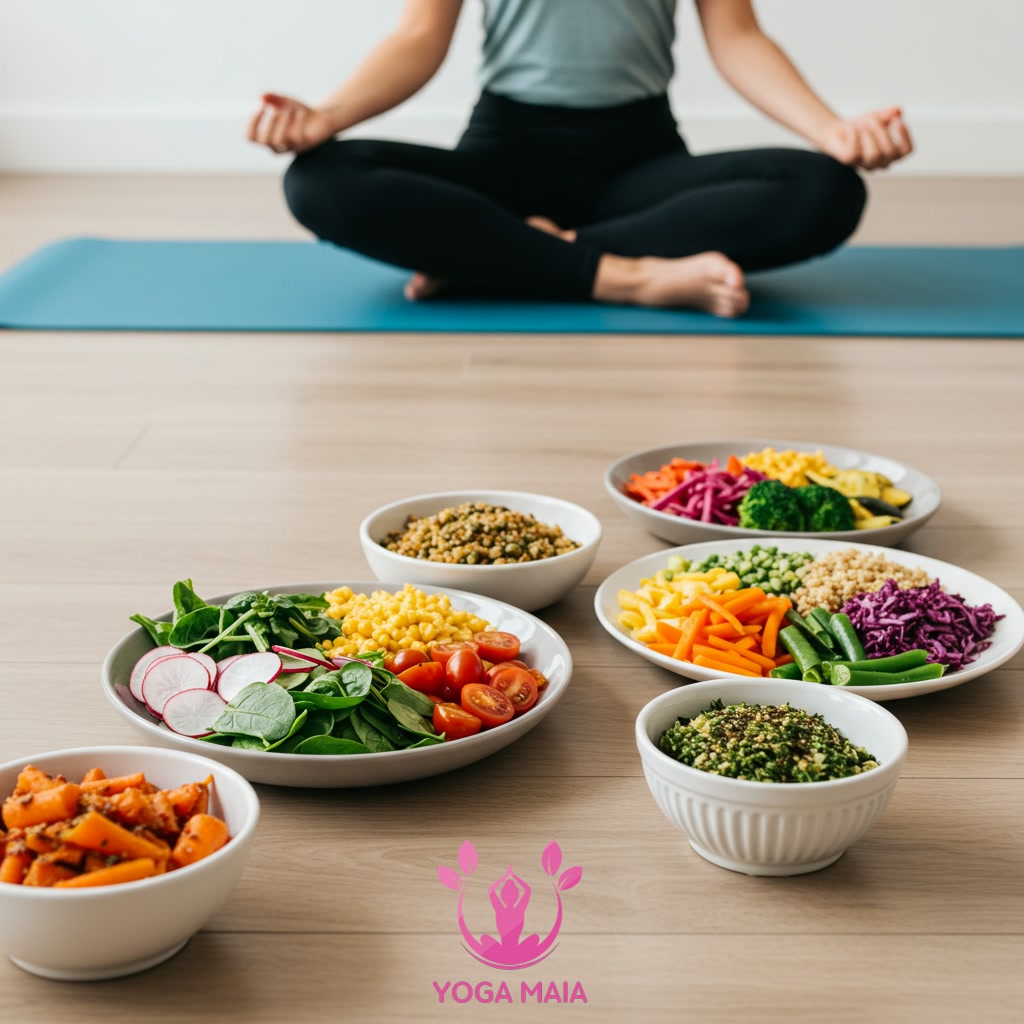
This content explores how simple, low-carb plant-based meals can enhance your yoga practice. It provides guidance on preparing nutritious food designed to boost energy levels and promote overall well-being. By focusing on specific dietary choices, individuals can better support their physical vitality and improve their yoga flow. The aim is to offer practical meal ideas that nourish both the body and mind for a more fulfilling yoga experience.
Table of Contents
- Section 1: The Connection: Fueling Your Yoga Practice with Nutrition
- Section 2: Why Low-Carb Plant-Based? Benefits for Energy and Digestion
- Section 3: Building Your Plate: Key Principles of Low-Carb Plant-Based Meals for Yoga
- Section 4: Simple Meal Ideas: Nourishing Recipes for Before and After Your Flow
- Section 5: Making It Work: Planning and Preparing Your Meals for Consistency
- Section 6: Beyond the Mat: How This Diet Supports Overall Well-being
Section 1: The Connection: Fueling Your Yoga Practice with Nutrition
Yoga is more than just physical poses; it’s a holistic practice that benefits both body and mind. To truly enhance your yoga flow and experience its full potential, the fuel you provide your body is crucial. Just as a car needs the right kind of fuel to run smoothly, your body needs nourishing food to power through poses, maintain focus, and recover effectively. The connection between nutrition and yoga is profound: what you eat directly impacts your energy levels, flexibility, strength, and even mental clarity on the mat. Simple, nutrient-dense meals, particularly those that are low-carb and plant-based, can provide sustained energy without causing sluggishness, helping you feel lighter and more vibrant during your practice. This foundational link highlights why paying attention to your diet is an essential part of supporting your yoga journey.
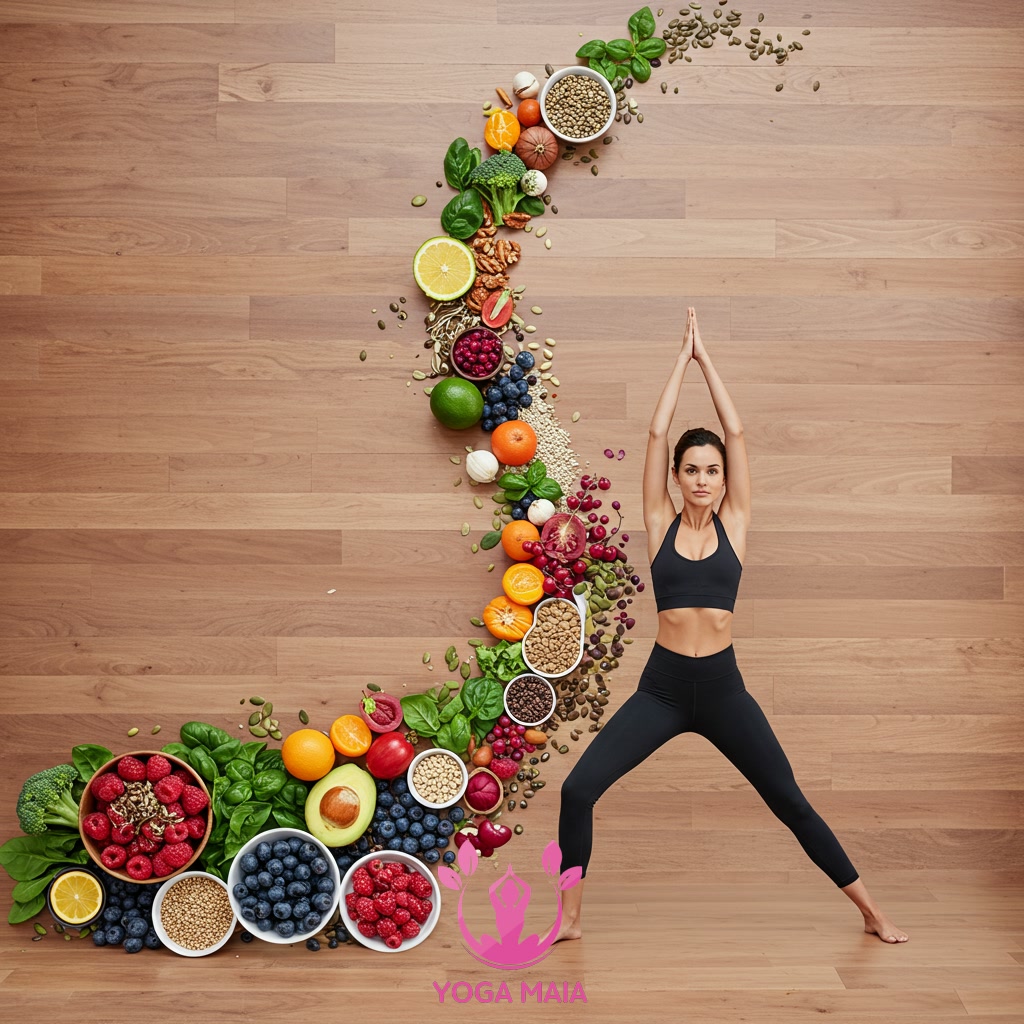
Section 2: Why Low-Carb Plant-Based? Benefits for Energy and Digestion
Choosing a low-carb plant-based diet offers distinct advantages for enhancing your yoga practice. Firstly, this approach helps maintain stable blood sugar levels, preventing energy crashes often associated with high-carbohydrate or processed foods. This provides a consistent, sustained energy flow crucial for moving smoothly through poses and maintaining focus. Secondly, plant-based foods, especially those low in carbs like leafy greens, non-starchy vegetables, nuts, and seeds, are rich in fiber and easier to digest than heavy animal products. A lighter digestive system means less energy is diverted to processing food, leaving you feeling less sluggish and more comfortable during twists, inversions, and forward folds. This dietary choice supports a feeling of lightness and vitality, directly contributing to a more fluid and energized yoga flow.
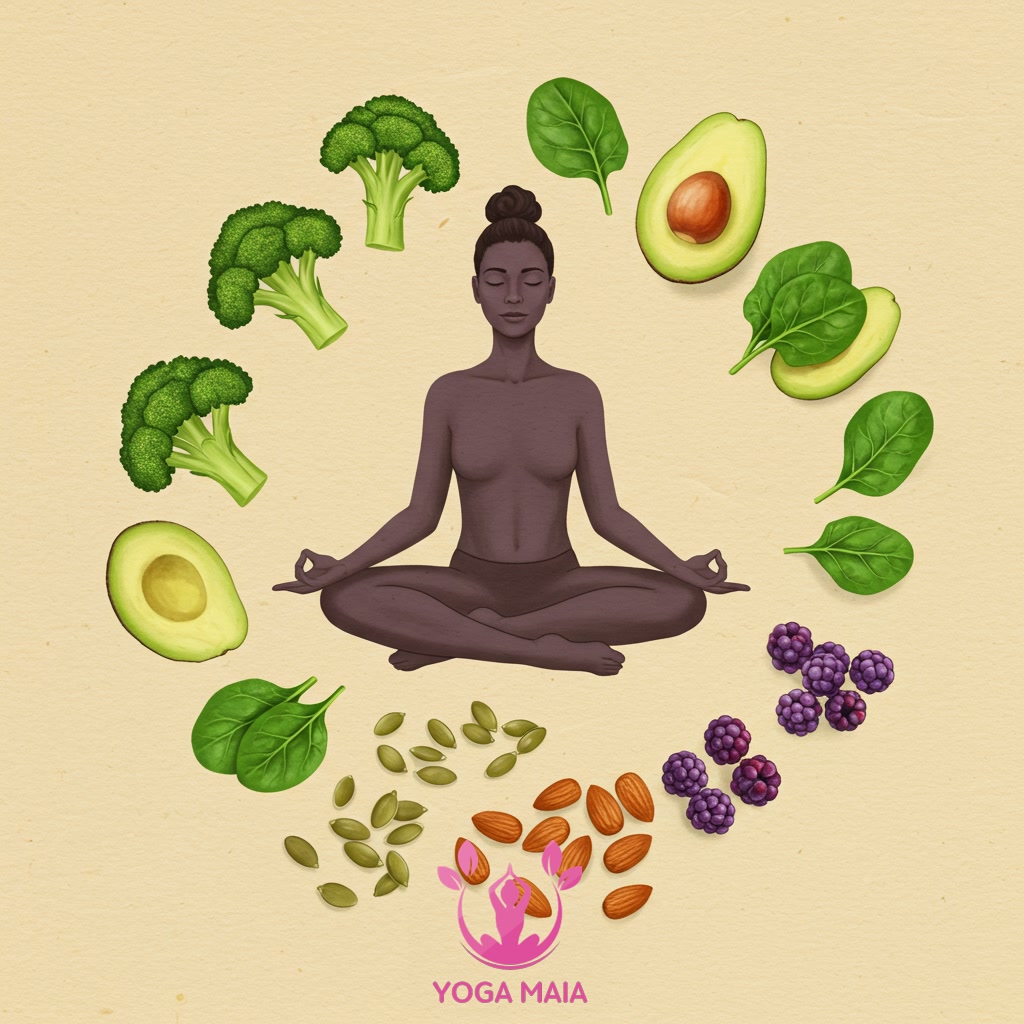
Section 3: Building Your Plate: Key Principles of Low-Carb Plant-Based Meals for Yoga
Following the idea of stable blood sugar, building your plate for low-carb plant-based eating for yoga involves prioritizing specific food groups. The foundation should be non-starchy vegetables like leafy greens, broccoli, and zucchini, which provide essential nutrients with minimal carbohydrates. Incorporating healthy fats from sources such as avocados, nuts, and seeds is crucial for sustained energy and satiety without impacting blood sugar significantly. While plant protein is important, focus on sources that fit the low-carb profile, like certain seeds, tempeh, or smaller portions of beans or lentils if your carb limit allows. Minimize grains, starchy vegetables like potatoes, and high-sugar fruits. This strategic combination ensures you get vital nutrients and energy to power your practice without feeling heavy or experiencing energy dips, promoting lightness and focus on the mat.
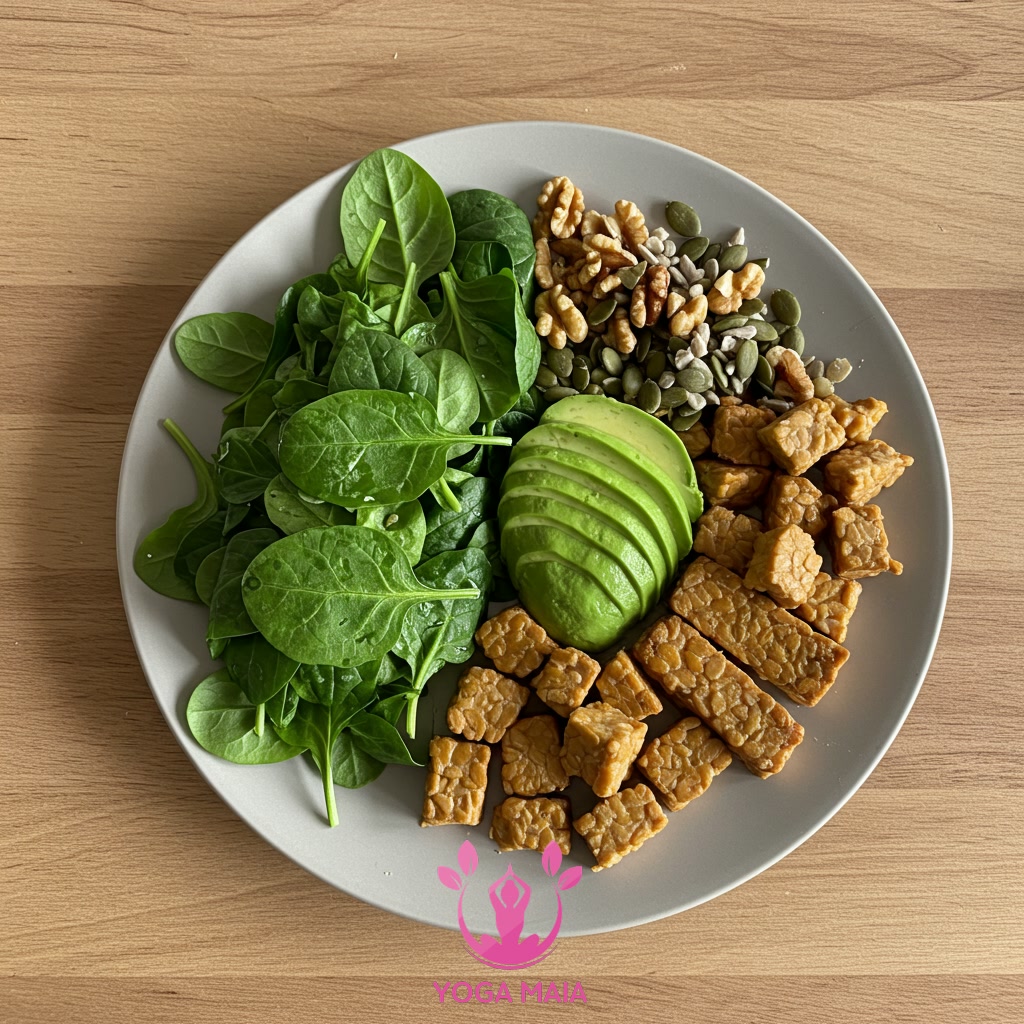 Building Your Plate: Key Principles of Low-Carb Plant-Based Meals for Yoga
Building Your Plate: Key Principles of Low-Carb Plant-Based Meals for Yoga
Section 4: Simple Meal Ideas: Nourishing Recipes for Before and After Your Flow
Building upon the principle of incorporating non-starchy vegetables, let’s explore simple, low-carb plant-based meal ideas perfectly suited for your yoga practice. Before your flow, prioritize easily digestible options that provide sustained energy without feeling heavy. Think small servings of avocado slices with a sprinkle of seeds, or a handful of almonds. Post-yoga, focus on replenishing nutrients and supporting muscle recovery with meals that combine plant-based protein and healthy fats. Examples include a vibrant salad loaded with leafy greens, cucumber, bell peppers, and tofu or tempeh, dressed with a light vinaigrette, or a small bowl of lentil soup paired with a side of steamed broccoli. These simple recipes ensure you are adequately fueled and recover effectively, enhancing both your physical vitality and mental clarity during and after your yoga session.
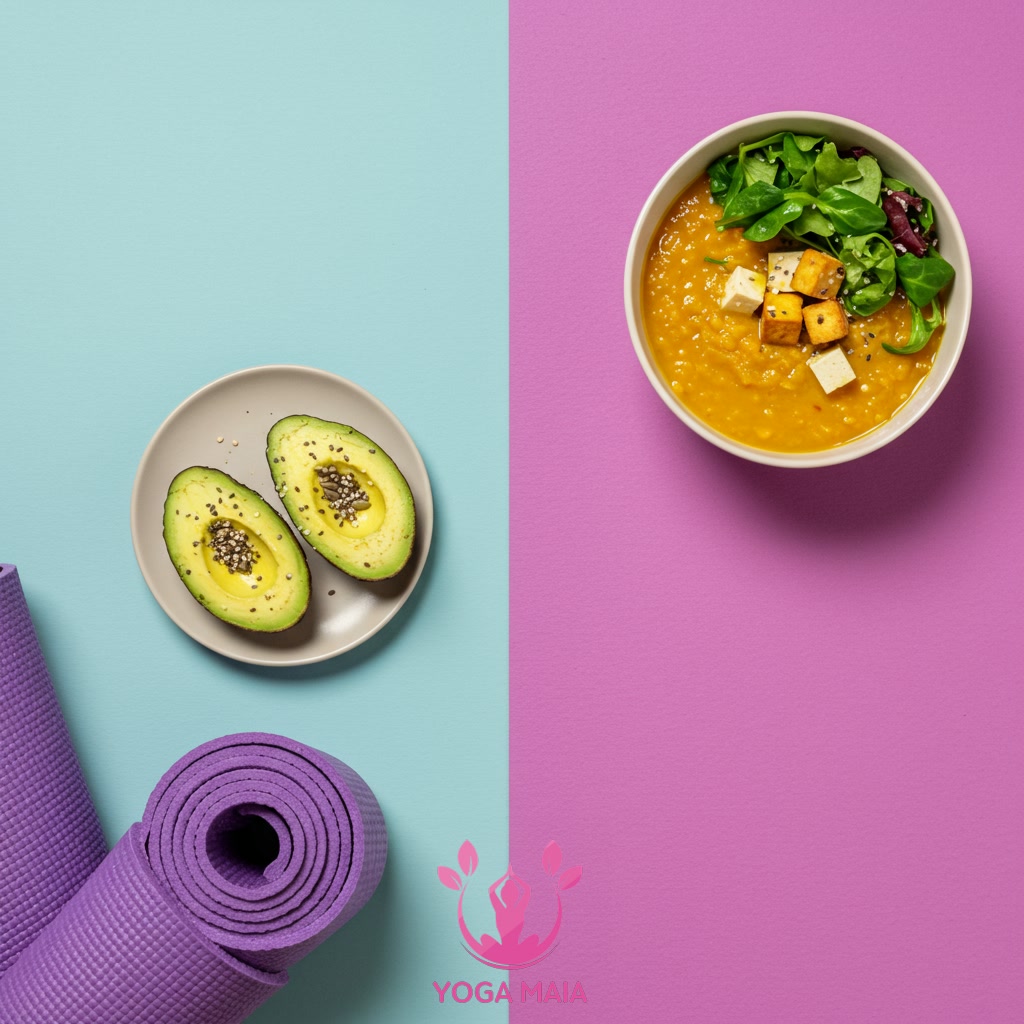 Simple Meal Ideas: Nourishing Recipes for Before and After Your Flow
Simple Meal Ideas: Nourishing Recipes for Before and After Your Flow
Section 5: Making It Work: Planning and Preparing Your Meals for Consistency
To truly integrate simple, low-carb plant-based meals into your routine and support your yoga practice consistently, proactive planning is essential. Begin by setting aside time each week to plan your meals, considering your schedule and when you’ll need nourishment before or after your flow. Create a shopping list based on your planned meals to streamline grocery trips and avoid impulse buys that might not align with your goals. Dedicate a block of time for meal preparation, such as chopping vegetables, cooking grains (if included in moderation), or portioning ingredients. Utilizing containers for batch cooking and easy storage ensures that nutritious, low-carb options are readily available, making healthy choices convenient even on busy days. This structured approach reduces decision fatigue and helps maintain the dietary consistency needed to fuel your body effectively for sustained energy and enhanced well-being on and off the mat.
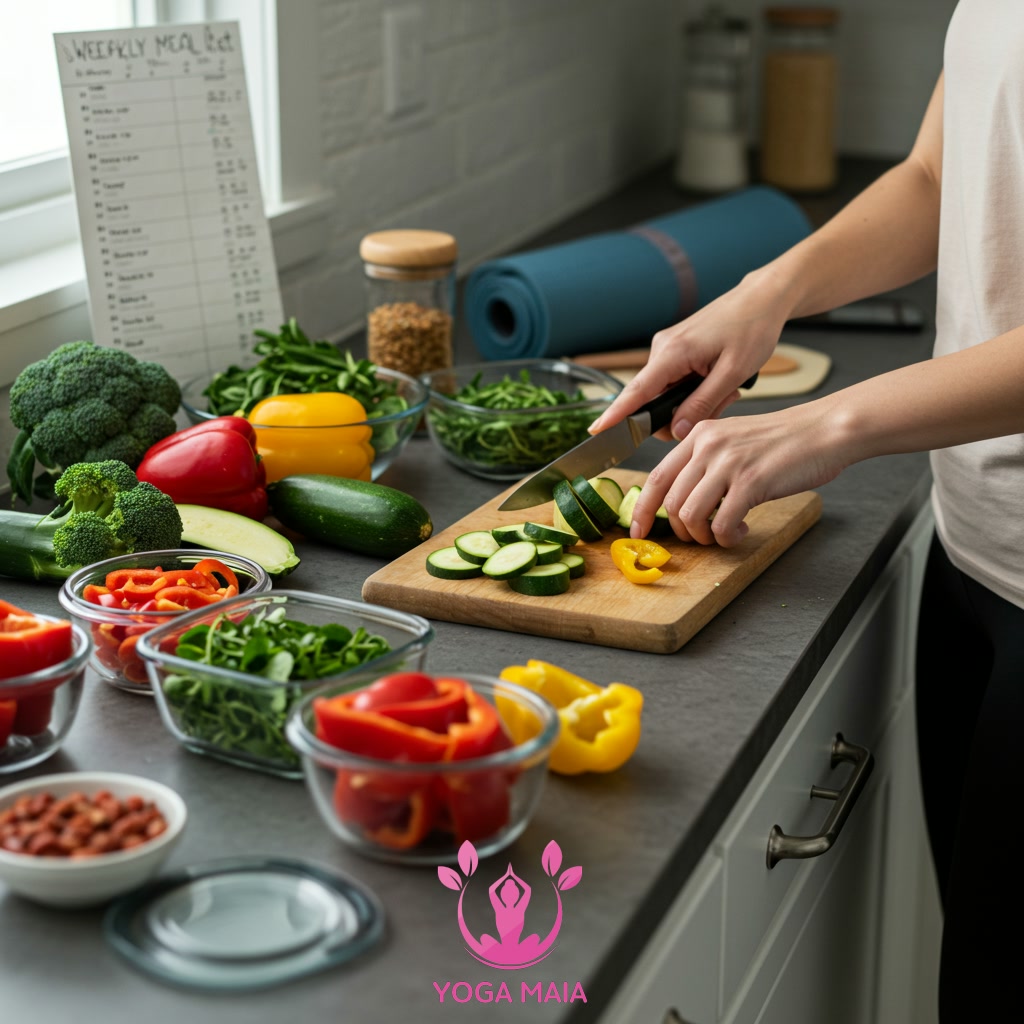 Making It Work: Planning and Preparing Your Meals for Consistency
Making It Work: Planning and Preparing Your Meals for Consistency
Section 6: Beyond the Mat: How This Diet Supports Overall Well-being
Beyond simply fueling your sessions on the mat, embracing simple, low-carb plant-based meals contributes significantly to your overall well-being throughout the day. This dietary approach often leads to more stable energy levels, preventing the crashes associated with high-sugar or processed foods. Improved digestion is another common benefit, leading to greater comfort and reduced bloating. Furthermore, the nutrient density of plant-based foods, combined with lower carbohydrate intake, can help manage inflammation and support better sleep quality. These holistic benefits extend far beyond physical vitality, positively impacting mental clarity and emotional balance. By fostering these foundational aspects of health off the mat, this diet creates a stronger, more resilient foundation that naturally enhances your energy, focus, and presence when you step onto the mat for your yoga flow.
 Beyond the Mat: How This Diet Supports Overall Well-being
Beyond the Mat: How This Diet Supports Overall Well-being












